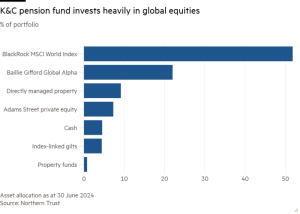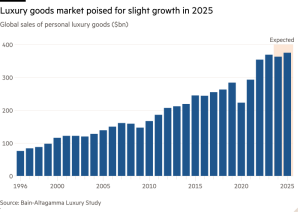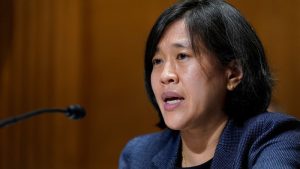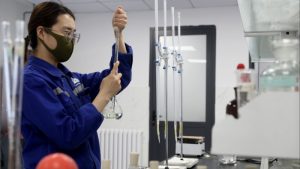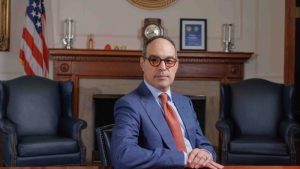Zero Sum by Charles Hecker — adventures in Russian capitalism
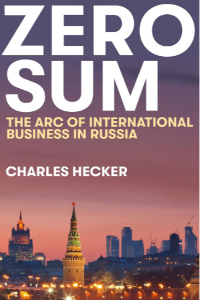
Moscow in the 1990s was one of the most exciting places on Earth. You could see history being made before your eyes, and it appeared to be heading in a better direction, towards some form of democracy and more individual freedom. It also had the feel of a gold-rush town.
“The largest country on Earth had fractured. Criminals roamed the streets and strolled the corridors of power. Opportunity was everywhere,” writes Charles Hecker in Zero Sum, his look at the role of foreign business in Russia’s evolution, and then regression, over the past 30 years.
The most visible sign that western business was back was the opening of the first McDonald’s in Moscow on January 31 1990. On the back of its phenomenal success grew grand theories. “No two countries that both have a McDonald’s have ever fought a war against each other,” wrote Thomas Friedman in 1996 in The New York Times. Twenty-five years later there were about 850 McDonald’s in Russia, and 109 in Ukraine. They did not prevent the bloodiest war in Europe since 1945.
Utterly discredited as it now is, Friedman’s theory rested on serious intellectual foundations that go back to Immanuel Kant’s 1795 book Perpetual Peace: A Philosophical Sketch. Friedman argued that in a country with a large middle class created through successful private enterprise, people would seek stability, not war. Kant was more interested in the existence of some form of constitutional republic.
For three decades these ideas underpinned western policy to the former Soviet Union, or for even longer in the case of Germany, which had sought Wandel durch Handel (change through trade). If we could help them build a prosperous middle class, then surely they would end up being just like us and there would be no return to wars, hot or cold?
Hecker had a ringside seat as this process played out in Russia, first as a young journalist at The Moscow Times and then as a corporate spook. He has written a book not from the perspective of the oligarchs’ board rooms and Kremlin corridors, but through the eyes of the foot soldiers of globalisation, of whom I was one.
By accident I had been in Moscow in August 1991 during the failed putsch and watched Boris Yeltsin climb on a tank to address a large crowd from about 10 feet away. I was hooked and moved to Moscow at the end of 1992 to be The Economist’s bureau chief, then joined the gold rush to run a Russian bank and finally left Russia just after Putin came to power in 2000 (but in that time never had the pleasure of bumping into Hecker).
I wish I could claim to have left because I foresaw the full horrors Putin would bring to Russia, but initially I felt rather stupid for my timing as the Russian boom really kicked off in the 2000s. For a time, it looked like trickle down might be more than a theory as a Russian middle class emerged. They had good jobs at companies you had heard of, a mortgage and a Visa card, shopped at Ikea, drove a Ford and went on foreign holidays. Some voted for Navalny. The only difference with their western peers was that they tended to be better at chess and had learned Pushkin by heart.
Then, Hecker writes: “It was all over, even more brutally than it began. No other market of this magnitude has opened and closed in the space of a generation.”
One of the book’s strengths is his description of how none of this should have come as a surprise. This is not the first time foreign businesses had piled into Russia. Previous generations of foreign businessmen had “faced corrupt government officials. They drank. They faced strong political, geopolitical and competitive forces. Some of them made money.” But most, in the end, did not.

In the 19th century, Russia was so important to Siemens that three brothers of its founder moved to live there. By 1914 Siemens had more than 4,000 employees in the country and foreigners owned half the share capital of Russian companies. Donetsk, the scene of some of the heaviest fighting today in Ukraine, was then named Yuzovka after its founder, a Welsh metallurgist called John Hughes. With brilliant timing First National City Bank of New York, Citibank’s predecessor, decided to open its first branch in Russia in January 1917. Few foreigners saw what was coming and they lost everything to the Bolsheviks.
The lesson was not learnt. In the 1930s General Electric was building dams in the Soviet Union and Ford was managing car plants there. Stalin took everything. At Christmas 2021, the myopic westerners still doing business in Russia laughed at the idea that Putin would be dumb enough to launch an all-out assault on Ukraine in the new year.
What went wrong this time? On the surface, Hecker suggests, Russian business practices did begin to resemble western ways, “but it remained that way — a resemblance”. Underneath was a system with its origins deeply rooted in the dysfunction of the Soviet economy.
For most Russian businessmen the rule of law meant whatever they could get away with. They only knew a country where the problem was not that the system is corrupt, but that corruption is the system.
Westerners thought that after Putin came to power a deal had been done that would allow the Russian oligarchs to keep their businesses if they stayed out of politics.
The locals understood something more profound was happening. Putin “was reinstating the way it had always worked, which was the state owned everything and gets to decide from time to time who has the right to those cash flows, who can manage the company, and thereby gets the cash flows, until we decide you can’t.”
The book comes alive when it describes the utter weirdness caused by the brutal injection of capitalism into the decayed Soviet world of the early 1990s. The stench of decay hit you when you landed at Sheremetyevo Airport, with its filthy floors, chaotic queues, the air outside thick with cheap tobacco and low octane gasoline. After dark, wild rides in gypsy cabs led to wilder nights at places such as Night Flight, the bar with the worst reputation in Moscow, and The Hungry Duck where the strip shows combined performers and enthusiastic patrons (not that I ever went there).
The foreign participants in this louche and ultimately failed experiment learnt there’s money to be made in transition, but it turns out to be temporary. Two of the most prominent western entrepreneurs in 1990s Moscow are now promoting cannabis farming in North America. There’s always a new gig to move on to if you like risk and have the right passport.
If you have the wrong passport and are stuck in Russia then tragically you are at the mercy of Putin’s KGB crew which, shorn of ideology, is running the whole place as a racket. Has western business finally learnt the lesson? In June, Hecker ends, Starbucks and Coca-Cola applied to re-register their Russian trademarks to maintain their intellectual property rights in the country.
Zero Sum: The Arc of International Business in Russia by Charles Hecker Hurst £25, 352 pages
Join our online book group on Facebook at FT Books Café and subscribe to our podcast Life & Art wherever you listen
#Sum #Charles #Hecker #adventures #Russian #capitalism
